
shutterstock.com
Coffee is an integral part of many cultures and is consumed by millions of people every day. Over the years, there have been concerns that coffee may increase the risk of cancers and cardiovascular disease, but the latest evidence suggests that moderate consumption as part of a healthy lifestyle is beneficial for most people. Click here to download a PDF version of this infographic.
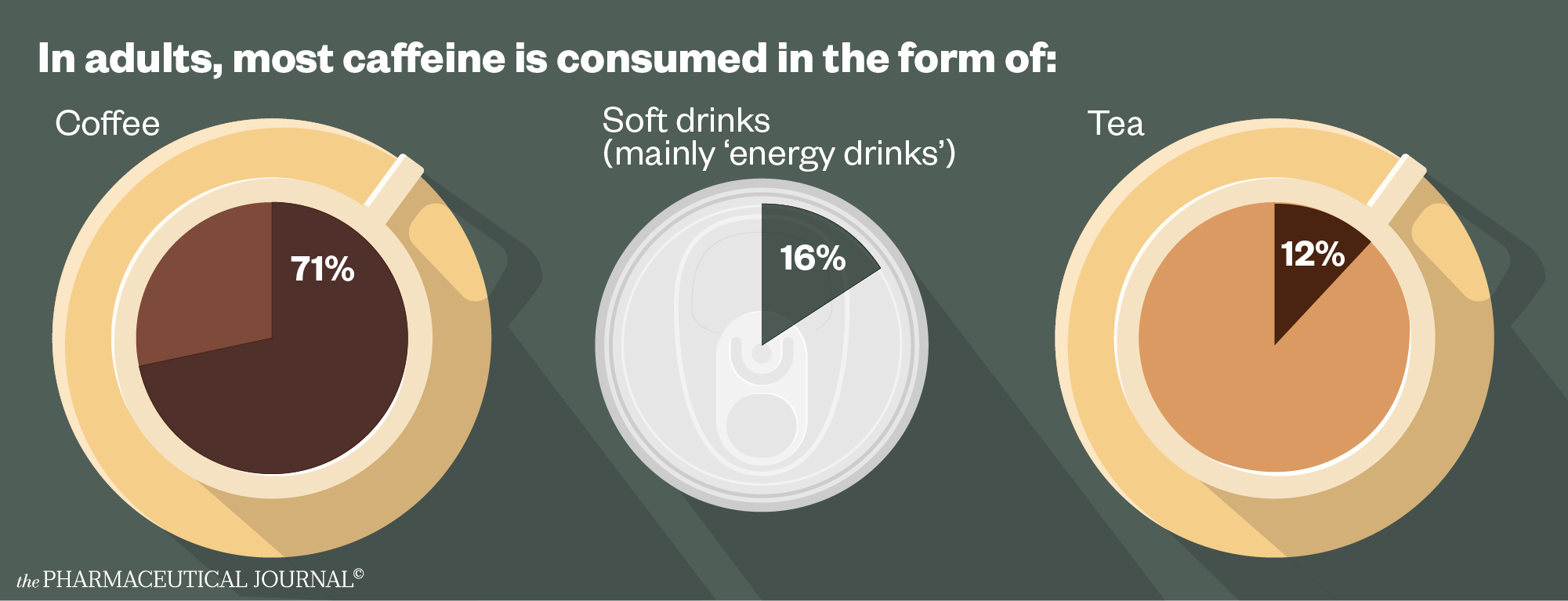
Recommended dose
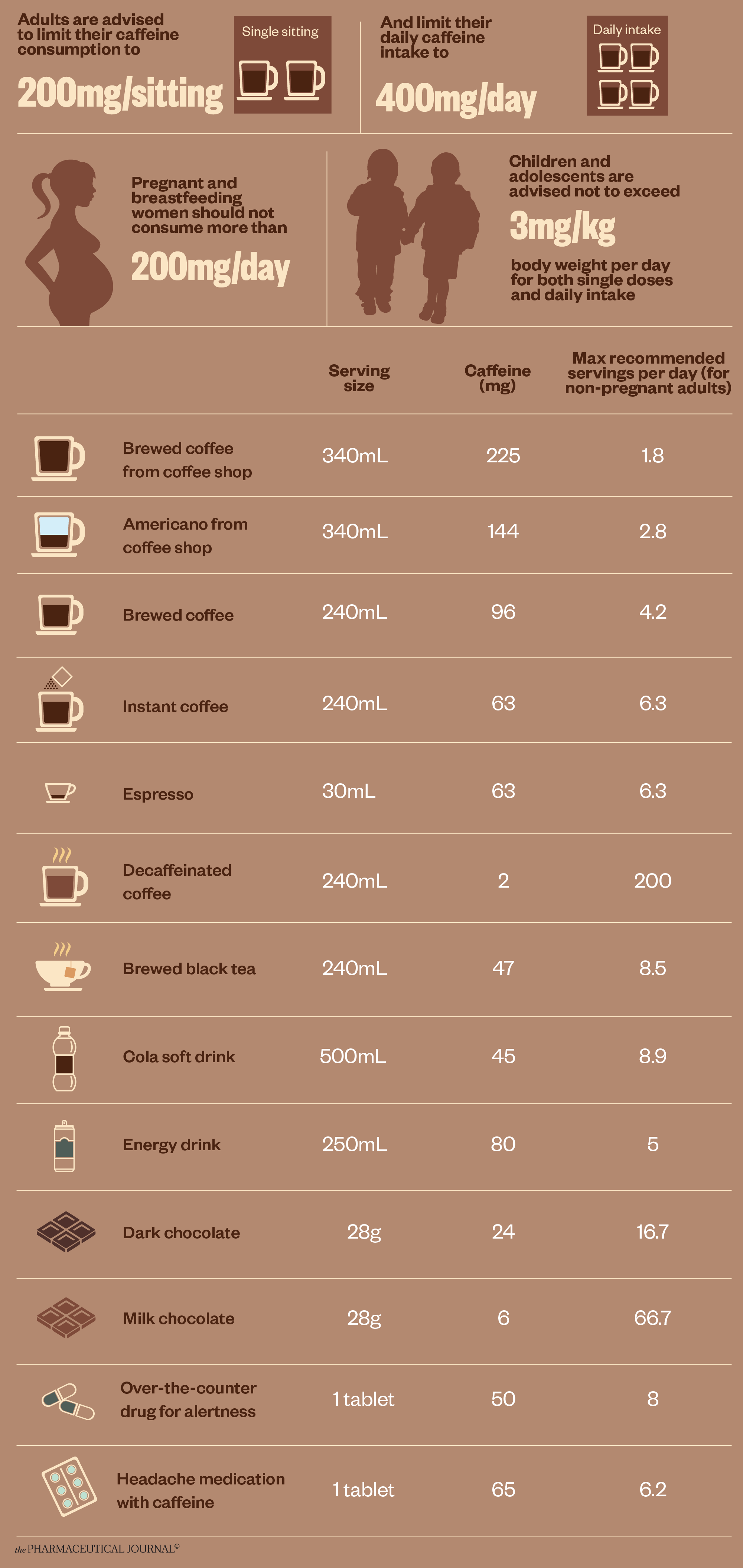
Benefits and risks of coffee intake
Many studies investigating the long-term effects of caffeine are based on the amount of coffee consumed. Since coffee contains hundreds of other biologically active phytochemicals, some of the effects seen in the studies may not be owing to caffeine.
Studies suggest that risk of death from all causes is reduced by 17% with consumption of three to four cups of coffee a day versus none (relative risk 0.83, 95% confidence interval 0.79 to 0.88), and incident cancer is reduced by 18% (relative risk 0.82, 0.74 to 0.89). Coffee consumption is also associated with a lower risk of several specific cancers, as well as neurological, metabolic and liver conditions.
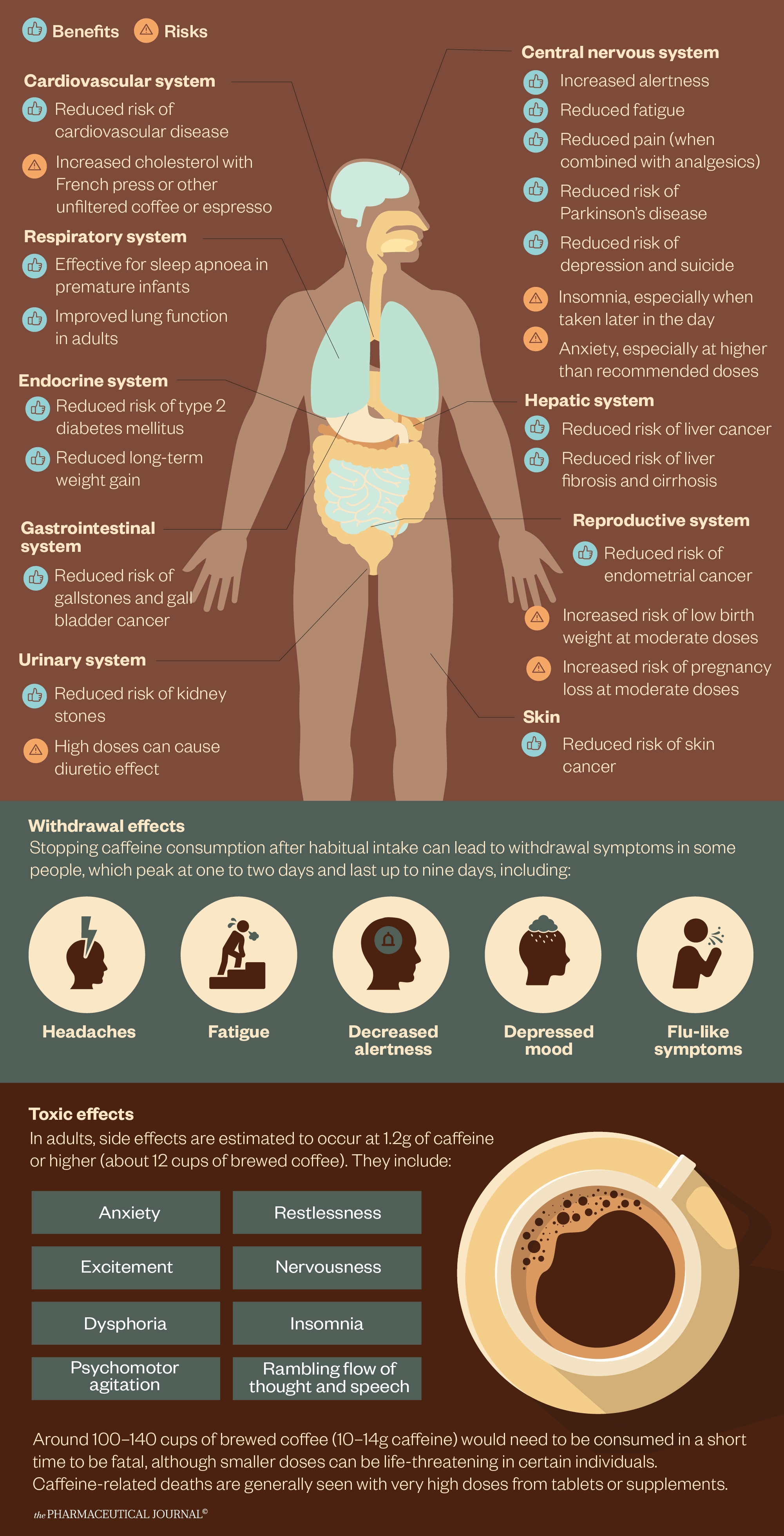
Metabolism and drug interactions
On average, caffeine absorption is nearly complete within 45 minutes after ingestion, with blood levels peaking after 30 minutes to 2 hours. The half-life of caffeine in adults is typically three to seven hours, depending on the activity of the CYP1A2 isoform of cytochrome P450, which metabolises 95% of the caffeine ingested. Caffeine half-life is also influenced by lifestyle factors and some drugs.
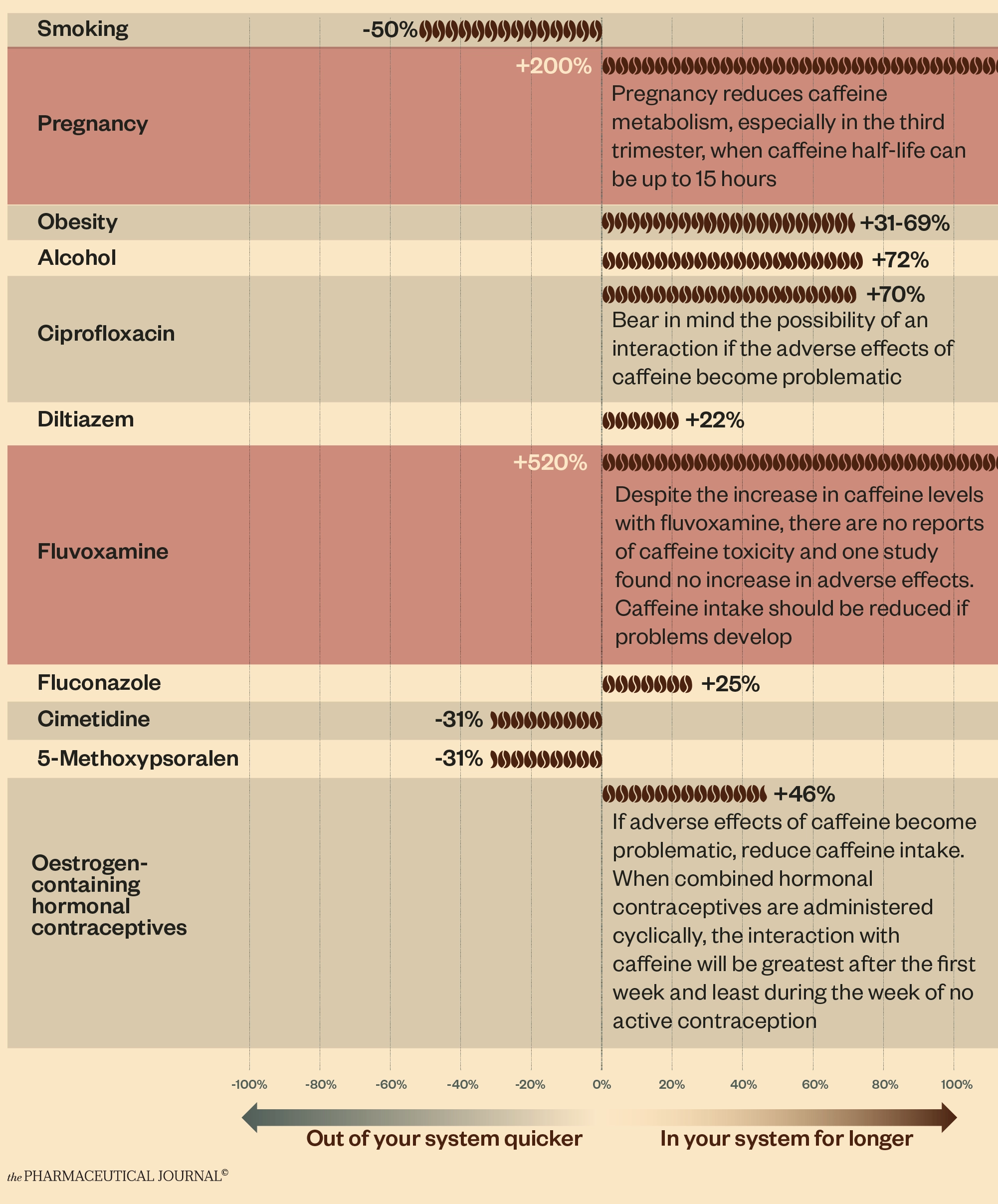
Sources: N Engl J Med 2020;383:369–378; Pharmacological Reviews 2018;70(2):384–411; EFSA Journal 2015;13(5):4102; Food Data Central; BMJ 2017;359:j5024; Cochrane Database of Systematic Reviews 2014, Issue 12. Art. No.: CD009281; Pharmaceutics 2021;13(10):1532; Stockley’s Drug Interactions.
Editorial adviser: Ursula Arens, writer, nutrition and dietetic, member of British Dietetic Association, Nutrition Society and SENSE; professional nutrition consultants
Artwork by: MAG
2 comments
You must be logged in to post a comment.


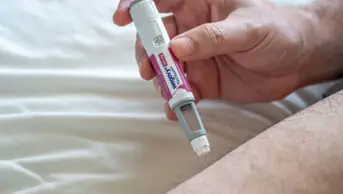
Could you please quantify what "moderate doses" of caffeine are? How many mg does that equate to?
Hi Lucy. Thanks for the query. By moderate consumption, I meant not more than the recommended limit, so 200mg per sitting and 400mg per day for non-pregnant adults.